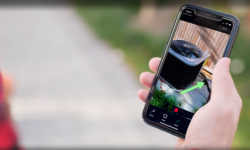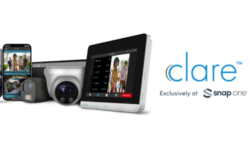Key to Success: Spotlight Life Safety’s Role in the Smart Home Ecosystem
Telular’s Shawn Welsh explains why life safety and peace of mind still plays such an important role in marketing and selling residential security systems in today’s fast-evolving smart home and IoT marketplace.

Shawn Welsh
A 20-year veteran of the wireless industry, Shawn Welsh, senior vice president of product line management and marketing for Telular, is responsible for the company’s numerous IoT product lines and growth strategies. He joins the conversation to share his perspectives on a rapidly changing smart home marketplace.
Defining the core value proposition of a traditional security system would seem increasingly difficult amid so much market disruption. Is it still peace of mind?
Consumers are conditioned these days to understand specialization with lifestyle products: Arlo equals video; Nest equals smart thermostats; Alexa equals voice control; and so on. Along those lines, a traditional security system equals the life-safety product in the home.
It must be able to stand alone on the values of not just peace of mind, but peace of mind that doesn’t swap the homeowner’s comfort of being protected for the stress of becoming a 24/7 security guard and emergency dispatcher. Traditional security systems suppliers must own that fact that they are obsessed with providing families stress-free protection and safety and not just an opportunistic way to cut costs by shift the burden of actual safety over to the end user.
The nuisance is that traditional systems can’t act isolated from interacting with the best-of-breed specialized lifestyle products either. They can integrate with other consumer products with the specific goal of leveraging those products’ specializations to enhance the overall security of the home.
Some once suggested that the security system was destined to be the hub of the smart home, and must position themselves as such or become irrelevant. As time tested this point of view, the message has clearly shifted back to a prioritizing life safety while acknowledging lifestyle. This is because going toe-to-toe on lifestyle became a choice to willingly compete against a hoard of specialized consumer products that were adding features rapidly while happily not charging monthly for them. Meanwhile, real, stress-free security remained worth paying someone each month to ensure.
What excites you about tomorrow’s technological landscape?
I am most excited by likelihood that technology will restore the trust in a traditional security system with emergency responders. The industry constantly fights false alarms and the ill will with law enforcement that it causes. All devices are getting smarter with the help of the Cloud and machine learning.
The natural progression of this is that false alarms will be detected and quietly handled. Ultimately, this will allow the industry to be viewed by local officials as an extension of total community safety. A mode where the police encourage residential security systems rather than work to penalize their use.
Can you shed some light on the uniqueness of the PERS market and what dealers need to know to actually succeed?
The real challenge of PERS is that the ecosystem looks similar to home security — a monitored device that talks to a central station for dispatching that is attached to monthly subscriptions — but it is actually very different in important ways.
The most striking difference is that the customer is not a young family settling in for years; it is an elderly person living alone that is nearing the end of their life. The circumstances that cause a PERS system to be used are commonly the family’s acknowledgement that their elderly relative is suddenly not doing well.
Sadly, this commonly results in the resulting subscription lasting only two to three years before the person passes away. What this means for dealers is that churn is high, thus new customer acquisition efforts must be constantly ongoing if PERS is intended something other than a casual offering.
Also, PERS contracts commonly include the hardware as part of the subscription fee, but it can be hard to recover the unit from the grieving family when the subscription is cancelled. For this reason, care must be given to ensure the pricing can breakeven within a year taking into account the higher customer acquisition costs, potential lost hardware and shortness of the average contract.
Miscalculating this easily turns the effort to expand into PERS into growth that doesn’t add actual value to the dealer’s business.
Lastly, dealers will be working with elderly people that are often lonely and unable be helpful relaying something quickly over the phone. Their team must be trained and capable of handling this special situation with patience. Everything will take longer.
Identify one facet of the alarm business that you see security dealers especially challenged by.
I think that security dealers are challenged by articulating life safety’s role in the ecosystem of the smart home. In the past few years, so much attention went toward hiding life safety behind lifestyle. As consumer lifestyle solutions raced to zero, the perception of the value of professionally supplied lifestyle diminished.
Our industry has evolved to be very efficient at providing trusted life safety solutions, and it seems foolish to forget all that so that we can instead be the trusted source of setting thermostats or turning off lights.
Dealers must reorient their message toward being the definitive source of life-safety solutions that can still support lifestyle upgrades and integrations for their customer’s convenience. They need to realize that the never-ending stream of new consumer gadgets is an opportunity for them to shine. The safety they provide isn’t transient like the latest hot product.
What is your view of the DIY phenomenon and its effect on the traditional security dealer marketplace?
We see the opportunity for optimism because DIY is growing the appreciation of professionally monitored systems. They are tapping into the tech savvy before they have families. Dealers are seeing that the DIY adopters aren’t really the typical demographic that they considered their core customer. However, once a DIY-er transitions to young families, they are commonly ready to hand the responsibility of protecting the family over to the pros.
Telguard is leveraging IFTTT, or If This Then That, technology for the HomeControl Flex offering. Can you explain a bit for the layperson the advantages here?
We really want Telguard’s HomeControl Flex interactive service to be a standard connector between the security panel and consumer products and services. While many manufacturers in the security industry try to create walled gardens with curated products and rules, we saw the opportunity to do it differently. We created a software API that allows us to connect professionally monitored security systems with any third-party product — IFTTT was just the first.
A walled garden approach will forever struggle to keep up with the crushing pace of innovation from the tech startups. Dealers only offering walled gardens solutions will be waiting for their supplier to duplicate whatever consumer fad is driving smart home adoption.
IFTTT, in contrast, is more like a public garden. They allow hundreds of new products and services to connect with their simple, intuitive rules engine. New products are connecting to it every week and often launch with IFTTT connectivity.
Telguard wants the security panel to be the trusted life-safety system in the home, but it should play nice with consumer products too. The advantage of HomeControl Flex and IFTTT is that while the dealer must only support simple basic interactive capabilities. The end user can use the free, IFTTT rules engine to link those basic capabilities to the hottest consumer products.
For example, HomeControl Flex customers could arm and disarm their panels with Alexa when Alexa first launched. Walled gardens added that feature months later. Furthermore, when the fad fades what remains is a dedicated life safety system that is casually ready to connect to whatever the new fad is.
What’s really powerful is that customers feel like they are still getting what they value, security, and are never disillusioned because their favorite gadget isn’t compatible. We tell dealers that IFTTT lets them focus on security and lets their customers integrate their lives.
If you enjoyed this article and want to receive more valuable industry content like this, click here to sign up for our FREE digital newsletters!

Security Is Our Business, Too
For professionals who recommend, buy and install all types of electronic security equipment, a free subscription to Commercial Integrator + Security Sales & Integration is like having a consultant on call. You’ll find an ideal balance of technology and business coverage, with installation tips and techniques for products and updates on how to add to your bottom line.
A FREE subscription to the top resource for security and integration industry will prove to be invaluable.














